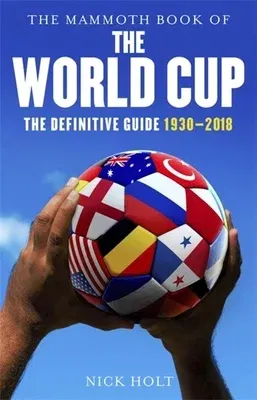An all-encompassing, chronological guide to football's World Cup, one of
the world's few truly international events, in good time for the June
2018 kick-off in Russia. From its beginnings in 1930 to the modern
all-singing, all-dancing self-styled 'greatest show on Earth', every
tournament is covered with features on major stars and great games, as
well as stories about some less celebrated names and quirky stats and
intriguing essays.
Holt's focus is very much on what takes place on the field, rather than
how football is a mirror for economic corruption, or how a nation's
style of play represents a profound statement about its people, or how a
passion for football can lift underpaid, socially marginalised people
out of poverty.
From the best World Cups, in 1958 and 1970, to the worst, in 1962 and
2010, he looks behind the facts and the technical observations to the
stories: the mysterious sins of omission; critical injuries to key
players; and coaching U-turns.
He explains how England's World Cup achievements under Sven-Göran
Eriksson, far from being a national disgrace, were actually quite
impressive, and looks at why Alf Ramsey didn't take Bobby Charlton off
in 1970, but this is no parochial, jingoistic account.
The book also asks why Brazil did not contribute in 1966, despite having
won the previous two tournaments and going on to win the next one? Why
the greatest players of their day did not always shine at the World
Cup - George Best and Alfredo Di Stefano, for example, never even made
it to the Finals. Why did Johann Cruyff not go to the 1978 World Cup?
And why did one of Germany's greatest players never play in the World
Cup?
There are lots of tables, some filled with obvious, but necessary
information, but others with more quirky observations. Alongside
accounts of epic games, there are also brief biographies of all the
great heroes of the World Cup.

